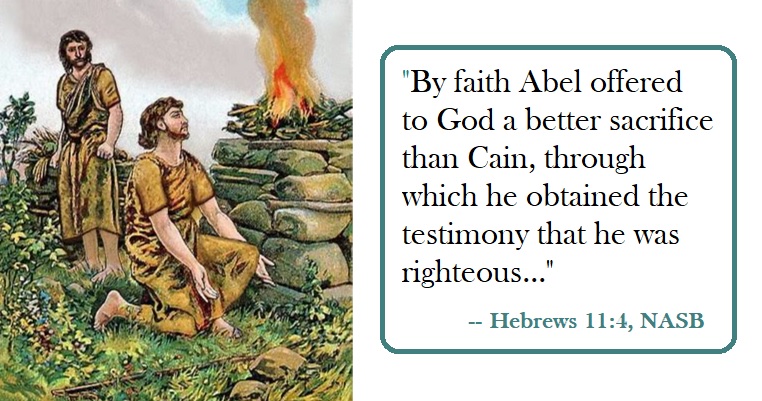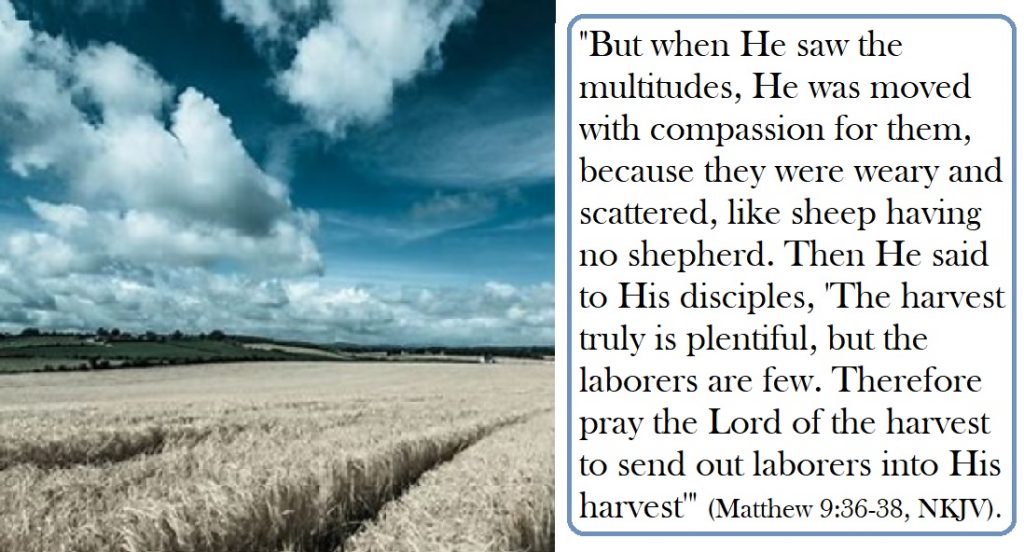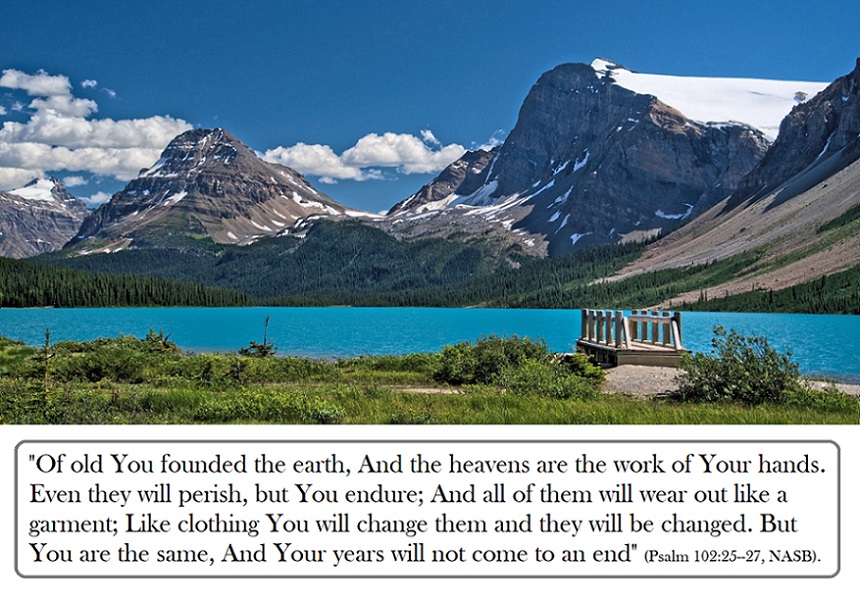“Go therefore and make disciples of all the nations…teaching them to observe all that I commanded you; and lo, I am with you always, even to the end of the age” (Matthew 28:19-20, NASB).
——————–
Contents:
1) “Sir, We Wish to See Jesus” (Clarence Johnson)
2) Do You Believe in Jesus? (Frank Himmel)
3) “He Being Dead Yet Speaketh” (Greg Gwin)
4) News & Notes
——————–

-1-
“Sir, We Wish to See Jesus”
Clarence Johnson
John 12:20-22, “Now there were certain Greeks among those who came up to worship at the feast. Then they came to Philip, who was from Bethsaida of Galilee, and asked him, saying, ‘Sir, we wish to see Jesus.’”
Even before Philip was appointed to the apostleship, he was inviting his friends to “Come and see” Jesus (John 1:43-46). About three and a half years later as Jesus was coming to the close of His earthly ministry, it was Philip to whom certain individuals came, saying, “Sir, we wish to see Jesus.” Those who made the request were Greeks, probably Jewish proselytes. This took place shortly after Jesus’ “triumphant entry into Jerusalem.” The whole town must have been buzzing with excitement. And these Greeks made a very wise choice in wanting to see Jesus.
Today, when many preachers are holding forth on human rights, animal rights, women’s “right” to an abortion, and various social causes too numerous to mention, surely there must still be a few hungering souls who would like to cry out, “Sirs, we want to see Jesus. We want to hear about Jesus.” And if 21st century preachers will preach the first century gospel, men can still see Jesus through the eye of faith. Men and women today can know the love of Jesus, the will of Jesus, and experience the joy of having a right relationship with God. “Sir, we wish to see Jesus.” So that we may “see” Him as He is manifested in the inspired Scriptures, let us take a brief journey through the pages of Matthew, Mark, Luke and John.
Our first glimpse of the Son of God is found in the early pages of the writings of Luke and Matthew. When Jesus was born in Bethlehem of Judea, shepherds were in the fields, watching over their flocks by night. An angel appeared and informed them of the birth of the Savior (Luke 2:8-20). A few days or perhaps weeks later, wise men from the east came to worship Him (Matt. 2:1-11).
Luke records the circumcision of Jesus when he was eight days old; then the purification of his mother when Jesus was 40 days old. The last Old Testament prophet had been Malachi, followed by almost 400 years of Divine silence. Now, new prophets appear on the scene, Simeon and Anna, identifying the child Jesus as the Messiah or Christ that the Jewish people had been looking for and longing for over the centuries. The next recorded incident in the life of Jesus takes place when He was 12 years old, conversing with the scholars in Jerusalem. The next time He is mentioned, He is a grown man, ready to be baptized by John, and begin His preaching ministry.
Matthew (chapters 5-7) records Jesus’ famous “sermon on the mount” in which He lays down the basic ground rules for “the kingdom of heaven” which was at hand. He gives instructions regarding moral purity, honesty, and spiritual sincerity.
He speaks of relationships with family, with people in general, even with enemies. He teaches His listeners how to pray.
During the course of His ministry, Jesus met and talked with multitudes, and with individuals. His discussion with the Samaritan woman (John 4) is a classic. His instructions to Nicodemus, a ruler of the Jews, are a masterpiece (John 3). His manner of dealing with the woman taken in adultery, and crowd who brought her to Him (John 8), is another stroke of genius. His parables are marvelous illustrations of how God’s will harmonizes with principles we understand and deal with every day of our lives.
As Jesus came to the end of His earthly ministry, He stayed in Bethany at night in the home of Mary, Martha, and Lazarus. He went into Jerusalem to teach each day. On one occasion, while Martha was preparing a meal, she sought to persuade Jesus to rebuke her sister for not helping. Instead, Jesus revealed that Mary — who was sitting and listening to the Master as He taught – had made the better choice (Luke 10:38-42). We, too, often get busy with the everyday affairs of life, and fail to take proper advantage of the time and opportunity we could use to “sit at Jesus’ feet” by reading and studying the New Testament Scriptures.
Jesus’ inspired biographers use from one fourth to one third of their record to tell of the events immediately surrounding Jesus’ crucifixion and His resurrection from the dead. As Jesus Himself explained (John 10:17-18), “My Father loves Me, because I lay down My life that I may take it again. No one takes it from Me, but I lay it down of Myself. I have power to lay it down, and I have power to take it again.” No other man who ever lived could rightly make that claim!
Moses of Old-Testament fame was a great man, but he remains buried. No man has ever known the location of his grave (Deut. 34:6). In Acts 2:29, Simon Peter declared that David, who was the greatest of all Israel’s kings, was still buried “and his tomb is with us to this day.” I have been privileged to stand before the grave of Ben Franklin in Philadelphia; the graves of many of the pilgrims in Plymouth, Massachusetts; of seeing the San Jacinto battlefield where brave men fell securing Texas’ freedom from Mexico; and the battleground in Gettysburg, where brother fought against brother. All their tombs are still with us. Their bodies will continue to sleep in the dust till Jesus returns to wake them from the dead and bring them to judgment. But the grave of Jesus contains no body. The empty tomb in silence shouts the message of the angel, “Why do you seek the living among the dead?” (Luke 24:5).
Finally, let us look toward heaven where Jesus, our forerunner prepares for our arrival (Heb. 6:20); where He serves as our intercessor, our advocate with the Father, the one mediator between God and man (Rom. 8:34; 1 John 2:1; 1 Tim. 2:5).
The Greeks of John 12:20 were wise to seek Jesus. The men from the east who came to worship Him long ago were wise men (Matt. 2:1-2). Wise men and women still seek Him. “Sir, we wish to see Jesus.”
– Via The Susquehanna Sentinel, March 5, 2006
——————–

-2-
Do You Believe in Jesus?
Frank Himmel
Do you believe in Jesus? Many would immediately answer yes. What exactly do you believe?
Historical Jesus
Believing in Jesus begins with believing that He was born in Bethlehem, grew up in Nazareth, became an influential teacher (affecting the course of history), did many good things, yet so infuriated His enemies that they crucified Him. This is historical faith, accepting historical facts. Many in Jesus’ day believed these things, including those who opposed Him, men such as Caiaphas (John 11) and Pilate (Lk. 23). Believing in historical Jesus is a start, but if that is as far as it goes it is of no more value than believing in George Washington or Abraham Lincoln.
Saving Jesus
What is the significance of these events? The crowd that crucified Him saw little; to them, it was the end of an imposter (Matthew 27:38-42). Peter announced, however, that these events were all planned by God (Acts 2:22-24; cf. 13:27). Indeed, they were the means by which Jesus provided salvation (1 Peter 1:18-21).
This is what Jesus foretold about His death. He said He would give His life a ransom for many (Matthew 20:28); that His blood would be poured out for forgiveness of sins (Matthew 26:28); that as the good shepherd He would lay down His life for the sheep and take it up again (John 10:11, 17-18).
Divine Jesus
How could Jesus foreknow these events? How could He control them? Just who is He?
That is precisely the question raised in John 8:25. Jesus answered that He is the Son who makes us free (v. 36), the one who came from God (v. 42), the sinless one (v. 46), the one whose word prevents us from dying (v. 51). Who is He? “I AM” (v. 58), one of the Old Testament names for God. Jesus is God (John 1:1, 14). Make no mistake, Jesus said He is divine, and belief in divine Jesus is essential. “For unless you believe that I am He, you will die in your sins” (John 8:24).
King Jesus
Look again at Peter’s sermon in Acts 2. Peter connects God’s promise to David to seat one of his descendants on his throne (2 Samuel 7:12-16) to Jesus’ resurrection and ascension to God’s right hand. Indeed, this is the site of His throne (Psalm 110:1-3; Revelation 3:21). Verse 4 of Psalm 110 adds that Jesus is a priest according to the order of Melchizedek. That means His kingship and priesthood are combined (Zechariah 6:12-13); He is king and priest at the same time.
Does this matter? It most certainly does! If Jesus is not king, He is not priest. As priest He makes atonement for our sins (Hebrews 9-10) and the continuing intercession for us by which He saves us (Hebrews 7:25). It is in Jesus’ kingdom that we have forgiveness of sins (Colossians 1:13). Denying that Jesus is now the king of Old Testament prophecy means denying His priesthood—remember, the two go together—and that means denying Him as the means of our salvation!
Lord Jesus
Peter’s sermon concluded, “ . . . God has made Him both Lord and Christ—this Jesus whom you crucified” (Acts 2:36). Some who believe in Jesus in one or more of the senses we have reviewed do not act on their faith. They will say they believe, perhaps even sing about it, but do not enact it.
This is the crux of the matter: Do you believe in Lord Jesus? Are you demonstrating that faith in the way you live? Are you Jesus’ disciple? Discipleship requires commitment: it means being devoted to Him above all others (Luke 14:26), going wherever He directs and bearing whatever hardships that entails (v. 27), and giving Him your all (v. 33). Discipleship requires obedience: “Why do you say to Me, ‘Lord, Lord,’ and do not do what I say?” (Luke 6:46). Discipleship is what Jesus requires of us (Matthew 28:19).
Now, do you believe in Jesus?
— Via Pathlights, October 25, 2020
——————–

-3-
“He Being Dead Yet Speaketh”
Greg Gwin
Concerning Abel, the Hebrew writer stated: “He being dead yet speaketh” (11:4). His example of faith and obedience has served to motivate others for thousands of years, and continues to do so.
When we die, our influence will also linger. Ours will not endure for nearly so long as Abel’s, but it will have a lasting impact on certain others. Consider:
– Your family –
No doubt the greatest realm of our influence is with those of our own kinfolk. They know us best of all, have spent the most time with us, and are the ones most thoroughly familiar with all that we have done. What bearing will your life have on those you leave behind? Will your children be blessed with a legacy of faithfulness from which they can draw strength long after you are gone? Will your children’s children continue to benefit from your strong example? Or, will they have learned a sad lesson of spiritual compromise from what they have seen in you?
– Your friends –
All of us have a wide reaching circle of friends and acquaintances. You might be surprised to know how much your words and deeds are being observed by them. After all, you are a Christian, and they know this about you. Therefore, they are drawing conclusions about the Christian life by what they see of it in you. Even after you are dead and gone, they will have an enduring impression – for good or bad – from you.
– Your brethren –
In the Lord’s church we are to be a close knit spiritual family. God’s plan for the church included the positive strength and support we could gain from one another (Eph. 4:16). Unfortunately, some do not take this very seriously, and instead of helping and encouraging their brethren, they actually serve as a source of disappointment and discouragement. When you die, and as your fellow Christians look back on your life, will you be seen as an asset or liability in the family of God?
One day, in the not-too-distant future, you will die. What will your life’s example continue to say about you then? Think!
— Via The Beacon, April 12, 2020
——————–
-4-
News & Notes
Folks to be praying for:
James Medlock went back into the local hospital Sunday (Nov. 29) with pulmonary edema. They have been eliminating fluid in his lungs to decrease the swelling. He has a bad heart valve; but at 94 years of age, there will no surgery. Following his hospital stay, he will be transferred to hospice care, rather than back to the nursing home.
Anita Young fell at work on the 18th, which resulted in a fractured knee and sprained left wrist, along with a small torn ligament in her hand. For a while, she is to remain off her leg by using a wheelchair and sometimes a crutch. Fortunately, she will be able to work from home.
Rachel Gerbing (the granddaughter of Doyle and Joyce Rittenhouse) is getting better every day from her covid-19 and will be able to resume work December 7. Her mother Michelle tested negative for the virus on Monday (Nov. 30).
Ronnie & Melotine Davis continue to have a lot of problems with their backs.
Deborah Medlock will be having a follow-up with her surgeon Tuesday. She will also be seeing her cancer doctor next next week for lab work, and the following week for the results.
Doyle Rittenhouse’s back surgery was rescheduled to December 17. He continues to have pain in his back.
Joyce’s brother will be seeing his heart doctor on Wednesday (Dec. 2) to find out about the additional heart surgery that he needs. They have been keeping his blood thin, but lately it has been a little too thin.
Let us also continue to remember in prayer the family and friends of Elaine Abbott.
Others to also be praying for: Pat Bridgman, Tammy Abbott, Joanne Ray, Vivian Foster, Rick Cuthbertson, Larry & Janice Hood, Judy Daugherty, Rex & Frankie Hadley, Jamie Cates, A.J. & Pat Joyner, Allen & Darlene Tanner, Shirley Davis, Tim Kirkland, and Cameron Haney.
——————–
The Steps That Lead to Eternal Salvation
1) Hear the gospel — for that is how faith comes (Rom. 10:17; John 20:30-31).
2) Believe in the deity of Jesus Christ (John 8:24; John 3:18).
3) Repent of sins. For every accountable person has sinned (Romans 3:23; Romans 3:10), which causes one to be spiritually dead (Ephesians 2:1) and separated from God (Isaiah 59:1-2; Romans 6:23). Therefore, repentance of sin is necessary (Luke 13:5; Acts 17:30). For whether the sin seems great or small, there will still be the same penalty for either (Matt. 12:36-37; 2 Cor. 5:10) — and even for a lie (Rev. 21:8).
4) Confess faith in Christ (Rom. 10:9-10; Acts 8:36-38).
5) Be baptized in water for the remission of sins (Mark 16:16; Acts 2:38; 22:16; 1 Pet. 3:21). This is the final step that puts one into Christ (Gal. 3:26-27). For from that baptism, one is then raised as a new creature (2 Cor. 5:17), having all sins forgiven and beginning a new life as a Christian (Rom. 6:3-4). For the one being baptized does so “through faith in the working of God” (Col. 2:12). In other words, believing that God will keep His word and forgive after one submits to these necessary steps. And now as a Christian, we then need to…
6) Continue in the faith by living for the Lord; for, if not, salvation can be lost (Matt. 24:13; Heb. 10:36-39; Rev. 2:10; 2 Pet. 2:20-22).
——————–
Tebeau Street
CHURCH OF CHRIST
1402 Tebeau Street, Waycross, GA 31501
We are currently meeting for only our Sunday 10 a.m. worship service each week, due to the coronavirus situation.
evangelist/editor: Tom Edwards (912) 281-9917
Tom@ThomasTEdwards.com
https://thomastedwards.com/go/all.htm/ (older version of the Gospel Observer website, but with bulletins going back to March 4, 1990)










